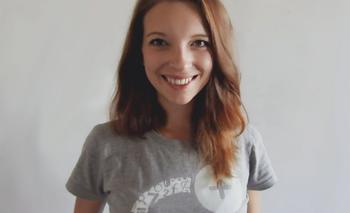Lisa Matthias
Research Interests
- Political Communication
- Frame Theory
- Public Opinion & Polarization
- Scholarly Communications
- Open Access
Education
|
Since 10/2018 |
Doctoral Candidate, Graduate School of North American Studies, Freie Universität Berlin |
|
2016 |
Master of Arts, North American Studies, John-F.-Kennedy Institut, Freie Universität Berlin |
|
2015 |
Bachelor of Arts, English and American Studies, General History, Universität Potsdam |
Invited Conferences & Talks
|
October 2019 |
"Assessing the impact of science, unscientifically, Keynote Presentation, Open Science Event 2019, Mannheim, Germany |
|
June 2019 |
"Taking the Measure of Impact", Panel, Congress of the Humanities and Social Sciences, Vancouver, Canada |
|
November 2018 |
"Digital Future: We are already there, but keep living in the past", Invited Talk, Postgraduate Forum of the German Association for American Studies, Essen, Germany |
|
October 2017 |
“Aletheia – Technology & community for open knowledge sharing” |
|
October 2017 |
“Utilizing Technology and Community Engagement for Open Knowledge Sharing” |
|
September 2017 |
“We don’t want to call it a paradigm shift, but …” |
|
September 2017 |
Collaborative reading and continuous peer review with PaperHive: "keeping academic literature alive” |
|
January 2017 |
“The art of getting cited” Invited workshop, Chiang Mai University, Thailand |
Scholarships & Awards
|
2019 |
Visiting Scholar, Scholarly Communications Lab, Simon Fraser University. February 15 - April 12. Vancouver, Canada. |
|
2018 |
IGDORE Open Science Travel Award. 12 April – 3 May & 17 July – 16 September, Ubud, Indonesia. |
|
2017 |
OpenCon Scholarship, OpenCon 2017. 11-13 November, Berlin, Germany. |
|
2017 |
Young Investigator Travel Award, Sage Bionetworks Assembly 2017. 20-22 April, Seattle, WA, USA. |
Politicians in Robes? Partisan Media Framing and Public Perception of the Supreme Court (Dissertationsprojekt)
Dissertation in Politik
Mentoring team:
First supervisor: Prof. Christian Lammert
Second supervisor: Prof. Dr. Curd Knüpfer
Third supervisor: Dr. Kathleen Searles
The U.S. Supreme Court is isolated from the public, yet dependent on high levels of public support to maintain its legitimacy. Due to this distance, the media functions as a mediator between the nation’s highest court and the public. While neutral reporting would present the Court as apolitical and preserve trust in the judiciary, portraying the Supreme Court as “just another political institution”, can harm its integrity and American democracy. My PhD project seeks to explore this complex relationship between the Supreme Court, partisan media, and the public. Partisan news outlets cater to audiences with distinct ideological beliefs, reinforcing them while opposing contrary beliefs. This can lead to partisan polarization, which has previously been exclusive to the political realm. However, recent polls have also revealed an existing party gap in the Supreme Court’s level of public support. As this implies a politicization of the Court, I am interested in how partisan media frame, or portray, the Supreme Court, how the framing has evolved over the last two decades, and if there is a visible pattern when looking at public opinion polls, in particular at the bipartisan divide, and the media’s framing of the Supreme Court. The second part of the project seeks to find out, through public surveys, how the media’s reporting influences public opinion of the Court.
Publications
|
2019 |
"Use of the Journal Impact Factor in academic review, promotion, and tenure evaluations" eLife (July 2019) |
|
2019 |
"What Collaboration Means to Us: We are more powerful when we work together as a community to solve problems" Collaborative Librarianship (July 2019) |
|
2019 |
"The Two-Way Street of Open Access Journal Publishing: Flip It and Reverse It" Publications (April 2019) |
|
2018 |
“Open Science Support as a Portfolio of Services and Projects: From Awareness to Engagement” Publications (June 2018) “Case Studies On Open Science In The Context Of Erc Projects - Set 2” Zenodo (May 2018) “The state of OA: a large-scale analysis of the prevalence and impact of Open Access articles” PeerJ 6:e4375 (February 2018) |
|
2017 |
“A multi-disciplinary perspective on emergent and future innovations in peer review” F1000Research 6:1151 (November 2017) |
|
2016 |
“Judicial tyranny or American justice?” ScienceOpen Research (September 2016) |

